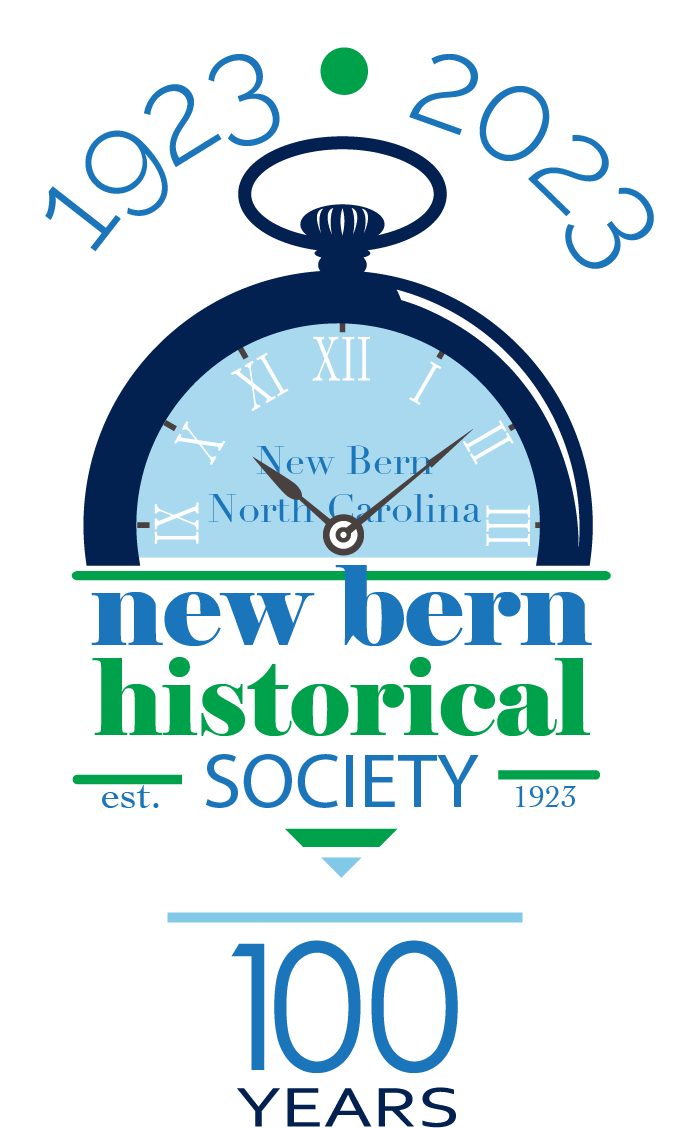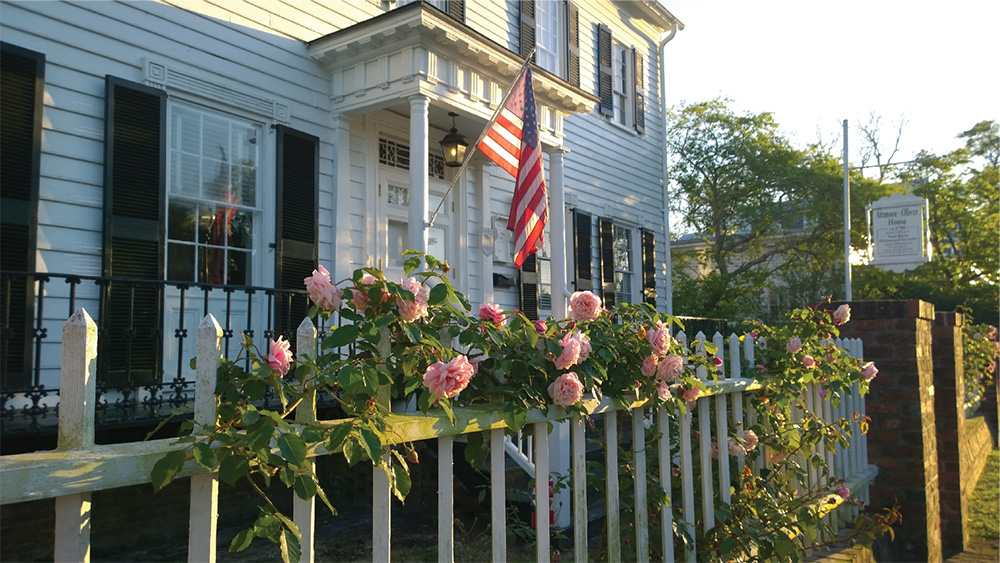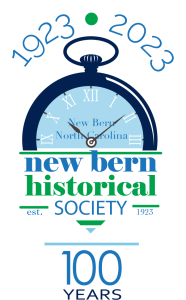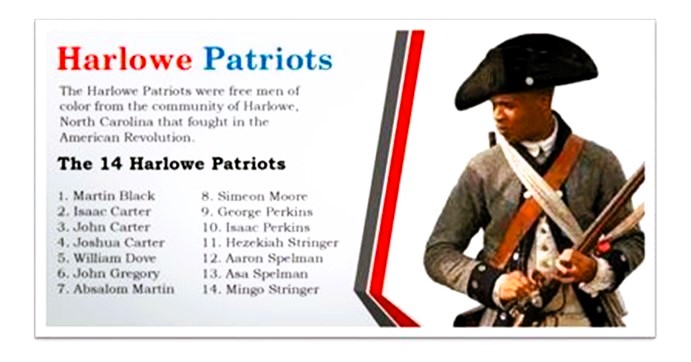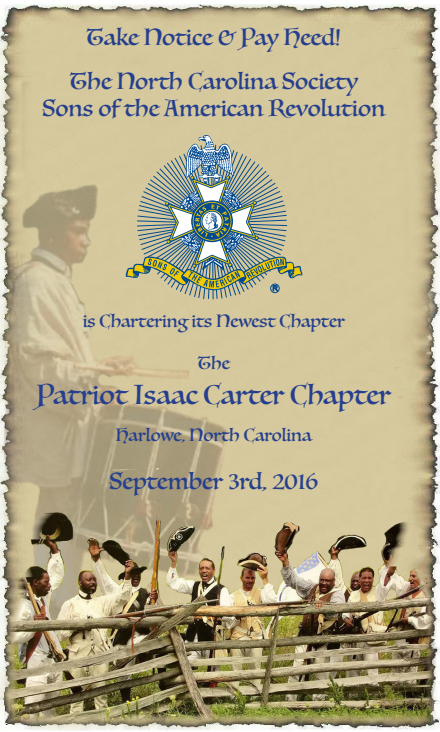Black Soldiers in the Cause of Freedom
by Claudia Houston, Historian, New Bern Historical Society
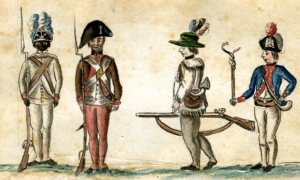
On March 5, 1770, British troops fired into a crowd of American colonists in Boston, Massachusetts. Five men were killed, including Crispus Attacks, a Black man. This event, forever known as the Boston Massacre, helped to spark the beginning of the American Revolution. While Crispus Attucks is probably the most well-known Black name associated with that war, thousands of Black men contributed to the Revolutionary War on both sides. It is believed that 5,000 to 8,000 African Americans took part in the Revolution as Patriots, and as many as 20,000 fought for the Crown. Most of the names of these men remain unknown, but fourteen men from nearby Harlowe are known to have served.
In the early part of the 1700’s, a group of Black families from Maryland and Virginia came to the eastern area of North Carolina looking for farmland and a place to reside in freedom. They settled into the present-day counties of Carteret and Craven and formed four small communities which included Harlowe.
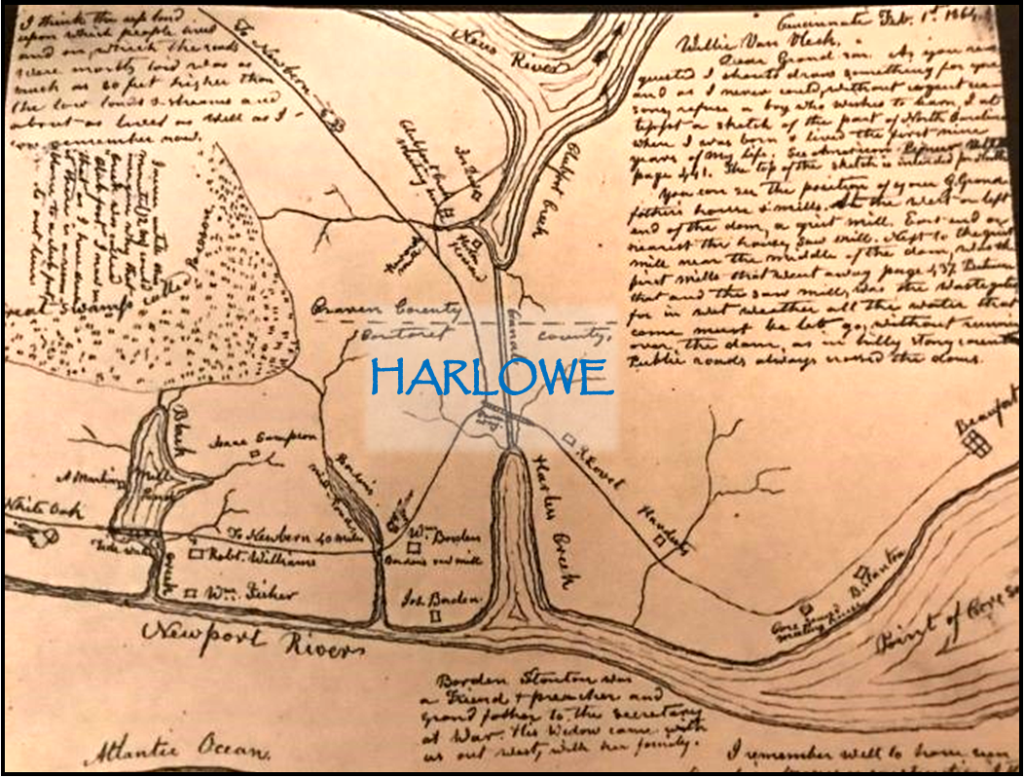
When a draft was initiated by the North Carolina Assembly in 1777, eligible men from Harlowe responded immediately. Fourteen free Black men from the community enlisted to serve in the American Revolution between 1777-1782 and served in battles including the Battle of White Plains and the Battle of Charleston.
Isaac Carter was one of these Harlowe Patriots. He enlisted as a private in the 10th NC Regiment for three years of service. In the winter of 1778, Carter served under Captain John Gilman in the garrison at Fort Hancock at Cape Lookout, the only Revolutionary War fort constructed in North Carolina. Fellow Harlowe Patriots Joshua Carter, William Dove, and Isaac Perkins served with him. In June 1783, Carter left his regiment, receiving an official certificate for his service. He returned home and remained in the area and was listed as a “free Negro” in the 1790 census of Craven County as one in a family of five.
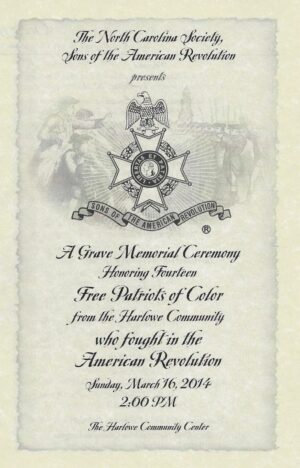 On March 16, 2014, the North Carolina Society Sons of the American Revolution (NCSSAR) dedicated a memorial marker commemorating the Revolutionary War service of these fourteen free men of color from the Harlowe area. Over two hundred people attended this event at the Godette School, including the National SAR President who announced that the tiny community of Harlowe, North Carolina “earned the distinction of contributing the greatest number of soldiers per capita in support of the American Patriot cause.”
On March 16, 2014, the North Carolina Society Sons of the American Revolution (NCSSAR) dedicated a memorial marker commemorating the Revolutionary War service of these fourteen free men of color from the Harlowe area. Over two hundred people attended this event at the Godette School, including the National SAR President who announced that the tiny community of Harlowe, North Carolina “earned the distinction of contributing the greatest number of soldiers per capita in support of the American Patriot cause.”
The SAR decided to organize a Harlowe chapter, and on September 3, 2016, the Patriot Isaac Carter Chapter was chartered. It was the first and only chapter of the Sons of the American Revolution named for an African American soldier who fought in the Revolution and the first and only chapter comprised primarily of African American men.
If you would like to learn more about the Harlowe Patriots, click here to read the 2021 New Bern Historical Society Journal article, “Supporting the Cause of Freedom: The Black Experience in Revolutionary Craven County” by Bernard George on the New Bern Historical Society website.
